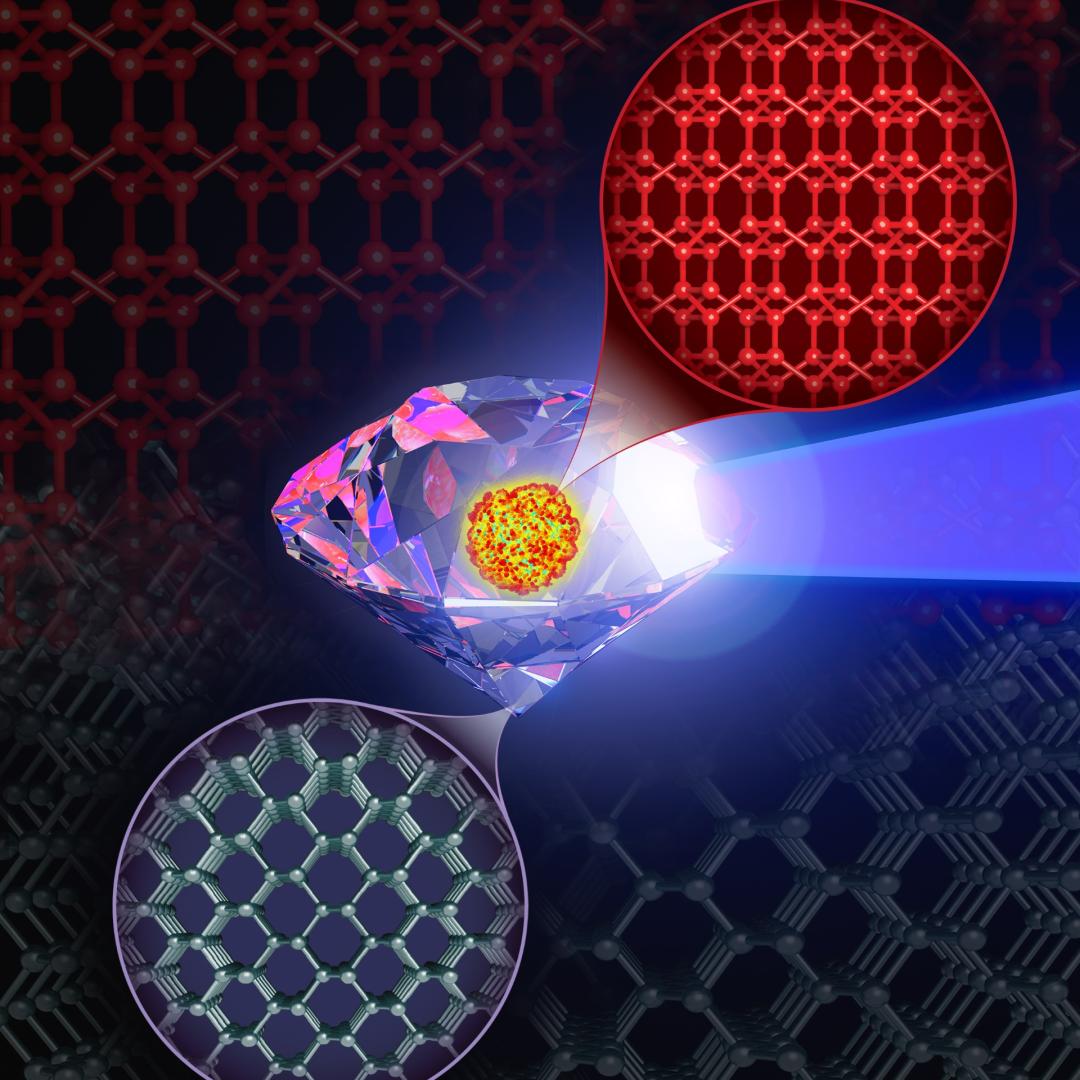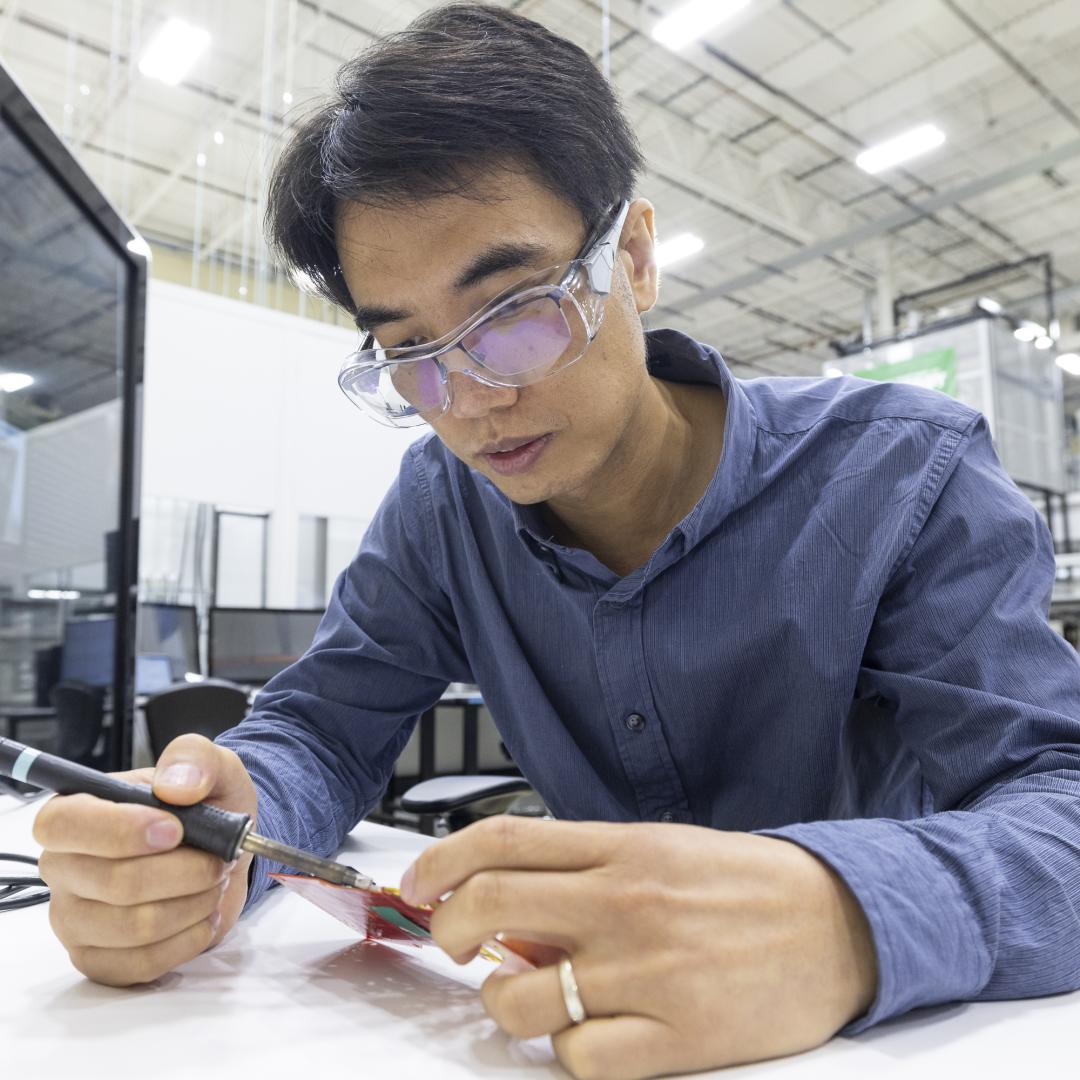
Filter News
Area of Research
News Topics
- (-) Molten Salt (8)
- (-) Partnerships (46)
- (-) Polymers (33)
- (-) Quantum Computing (35)
- 3-D Printing/Advanced Manufacturing (125)
- Advanced Reactors (34)
- Artificial Intelligence (94)
- Big Data (58)
- Bioenergy (92)
- Biology (100)
- Biomedical (59)
- Biotechnology (22)
- Buildings (57)
- Chemical Sciences (66)
- Clean Water (30)
- Climate Change (101)
- Composites (28)
- Computer Science (193)
- Coronavirus (46)
- Critical Materials (28)
- Cybersecurity (35)
- Decarbonization (80)
- Education (4)
- Element Discovery (1)
- Emergency (2)
- Energy Storage (109)
- Environment (196)
- Exascale Computing (39)
- Fossil Energy (6)
- Frontier (44)
- Fusion (55)
- Grid (65)
- High-Performance Computing (88)
- Hydropower (11)
- Irradiation (3)
- Isotopes (53)
- ITER (7)
- Machine Learning (48)
- Materials (144)
- Materials Science (142)
- Mathematics (9)
- Mercury (12)
- Microelectronics (3)
- Microscopy (51)
- Nanotechnology (60)
- National Security (65)
- Net Zero (14)
- Neutron Science (131)
- Nuclear Energy (109)
- Physics (62)
- Quantum Science (69)
- Renewable Energy (2)
- Security (24)
- Simulation (49)
- Software (1)
- Space Exploration (25)
- Statistics (3)
- Summit (59)
- Sustainable Energy (129)
- Transformational Challenge Reactor (7)
- Transportation (97)
Media Contacts

ORNL is sponsoring a cohort of 100Knoxville, a five-week mentorship and support program for Black founders of businesses.
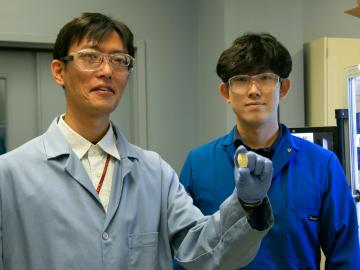
ORNL researchers have developed an upcycling approach that adds value to discarded plastics for reuse in additive manufacturing, or 3D printing.
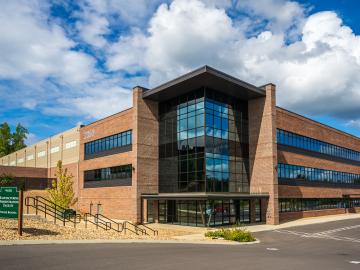
ORNL scientists will present new technologies available for licensing during the annual Technology Innovation Showcase. The event is 9 a.m. to 3 p.m. Thursday, June 16, at the Manufacturing Demonstration Facility at ORNL’s Hardin Valley campus.
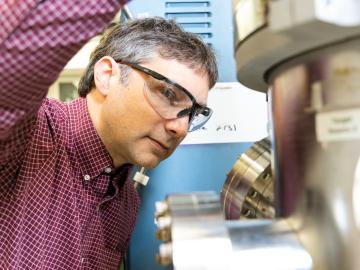
Several electrolyte and thin-film coating technologies, developed at Oak Ridge National Laboratory, have been licensed by BTRY, a battery technology company based in Virginia, to make batteries with increased energy density, at lower cost, and with an improved safety profile in crashes.
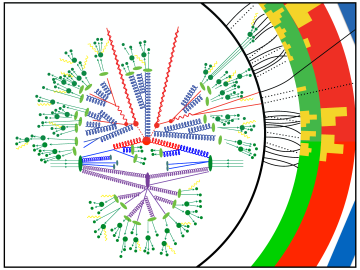
Lawrence Berkeley National Laboratory physicists Christian Bauer, Marat Freytsis and Benjamin Nachman have leveraged an IBM Q quantum computer through the Oak Ridge Leadership Computing Facility’s Quantum Computing User Program to capture part of a
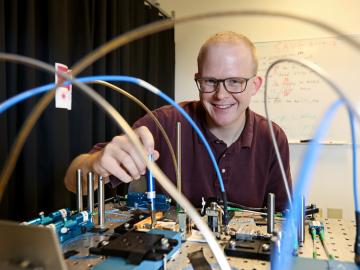
Scientists’ increasing mastery of quantum mechanics is heralding a new age of innovation. Technologies that harness the power of nature’s most minute scale show enormous potential across the scientific spectrum
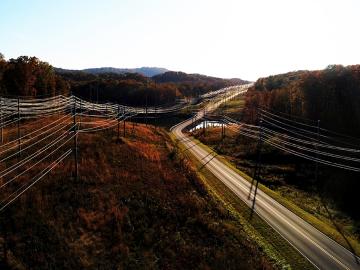
ORNL and the Tennessee Valley Authority, or TVA, are joining forces to advance decarbonization technologies from discovery through deployment through a new memorandum of understanding, or MOU.

ORNL, TVA and TNECD were recognized by the Federal Laboratory Consortium for their impactful partnership that resulted in a record $2.3 billion investment by Ultium Cells, a General Motors and LG Energy Solution joint venture, to build a battery cell manufacturing plant in Spring Hill, Tennessee.
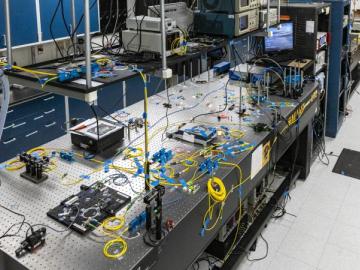
A rapidly emerging consensus in the scientific community predicts the future will be defined by humanity’s ability to exploit the laws of quantum mechanics.
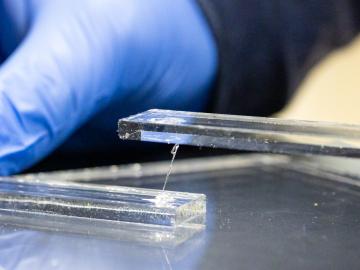
Researchers at ORNL used polymer chemistry to transform a common household plastic into a reusable adhesive with a rare combination of strength and ductility, making it one of the toughest materials ever reported.


